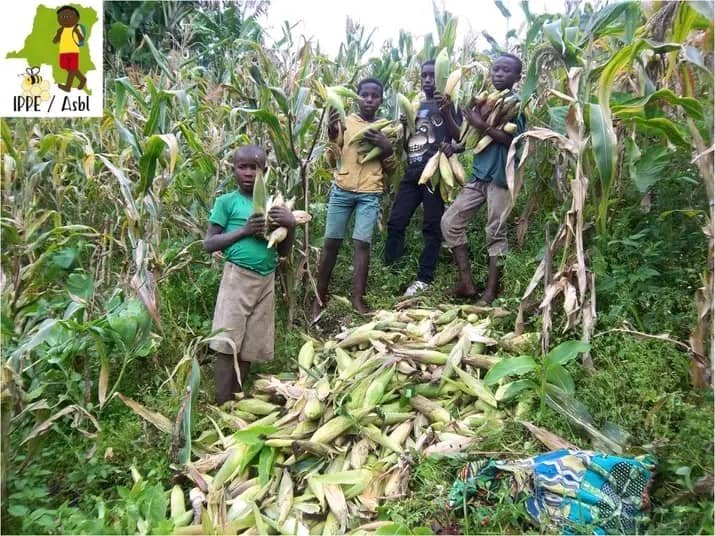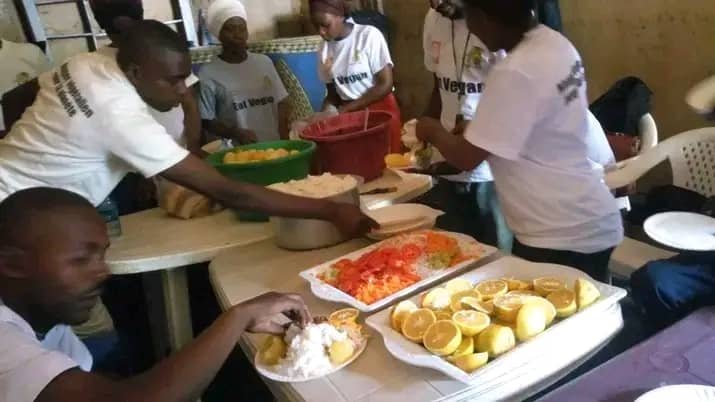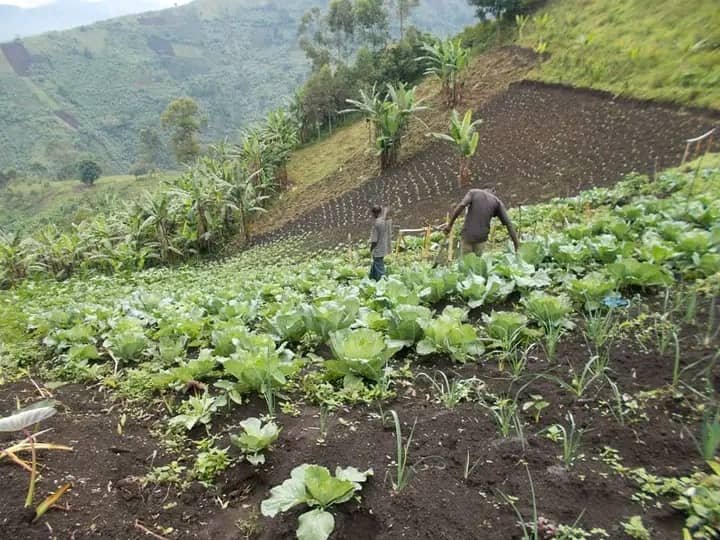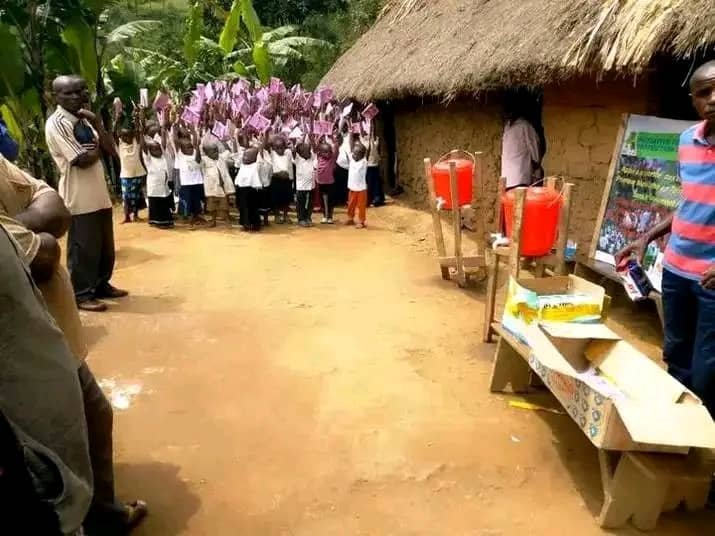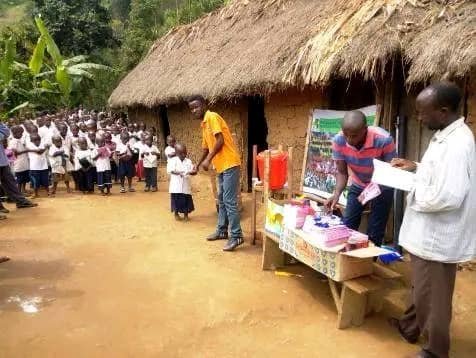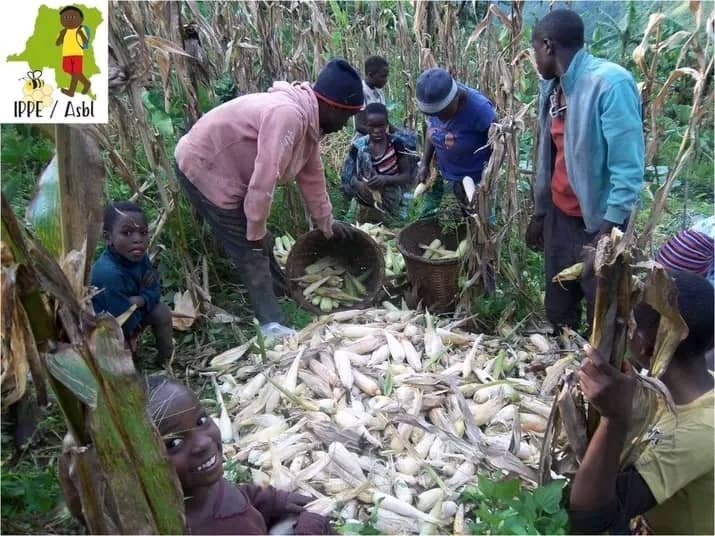Sustainable Food Systems and Animal Rights in War-Torn North Kivu, DRC
Editor’s note: This article was produced in collaboration with Weave News contributors Łukasz W. Niparko and Toky Rakotoarisoa. The interview was translated by Blake Lavia. All photos documenting the ongoing community work happening in North Kivu were graciously provided by Justin Lumoo Paluku of the IPPE.
The province of North Kivu, in the Democratic Republic of the Congo (DRC), is home to a vibrant tapestry of mountain rain forests and savannas, woven together by the rivers that feed Lake Edwards and Lake Kivu. It is also a region that is torn apart by war. The interests of neighboring countries and international economic forces have fueled the violence that has displaced more than 2.8 million people and is devastating the local ecosystems.
Underneath the fast-disappearing forests lie minerals such cobalt and coltan, essential components of lithium-ion batteries and smartphones. To satiate the global economy’s thirst for these rare minerals, mines operated by foreign-owned mining companies have proliferated across the DRC along with myriad informal mines operated by militias such as M23 (March 23 Movement) Rebel Group. Congolese officials and UN analysts accuse M23 of being backed by Rwanda. The group has recently pushed further west, fighting against Congolese government forces and rival militias.
Earth and water guardians in North Kivu
Amidst the ongoing chaos, however, water and earth guardians continue to work to create a better future for their communities and their more-than-human neighbors. One of these brave humans is Justin Lumoo Paluku, who works with the Initiative pour le Progrès et la Protection de l'Environnement (IPPE), or the Initiative for Environmental Progress and Protection.
We first met Justin in 2022, when he contributed to Confluence: A Tapestry of Rivers and their Guardians. Since then, the war has escalated, and Justin was forced to take refuge with many others in the provincial capital of Goma. The city that was already struggling to feed its one million inhabitants and internally displaced refugees has since been cut off from the surrounding countryside by the M23 Rebels.
Despite these life-threatening conditions, the IPPE has continued serving their human and more-than-human communities. Below is an interview in which Justin shares how the war is threatening the ecosystems of North Kivu, and how and why the IPPE is promoting “sustainable and responsible food systems.”
Please share more about your personal journey and how you initially got involved with environmental protection.
I am an environmentalist by training, having studied tourism, nature conservation, and environmental management at the university. I decided to form the Initiative pour les Progrès et la Protection de l'Environnement (IPPE) and get involved in the world of environmental protection because of the rampant environmental degradation and the threats to biodiversity in our country, the Democratic Republic of the Congo.
What is the current situation in Goma?
We are based in the city of Goma, in the province of North Kivu. On the surface, the situation in Goma would appear calm, except for the cracking sound of cartridges at night. Apart from that, all the city's urban areas are occupied by M23 rebels, including parts of Masisi territory, Nyiragongo territory, and Rutshuru.
People have left their hometowns to come to Goma, fleeing the multiple wars and conflicts that are getting worse by the day. This is accompanied by a climate of total insecurity, perpetrated by the militias.
How has the conflict affected IPPE and the work you do?
It affects our organization, because most of our programs are focused on rural areas, helping local communities and contributing to environmental protection. It is difficult for us to obtain supplies in the various villages. Everywhere rebels sow the seeds of insecurity.
We are in Goma, but most of our activities are in rural villages. Given the conflict, we can't move freely to reach the villages, nor can we go there to obtain supplies. We are forced to reduce the scope of our activities and only operate in regions where there is security. This does not allow us to continue our activities in communities occupied by militias and areas affected by the war.
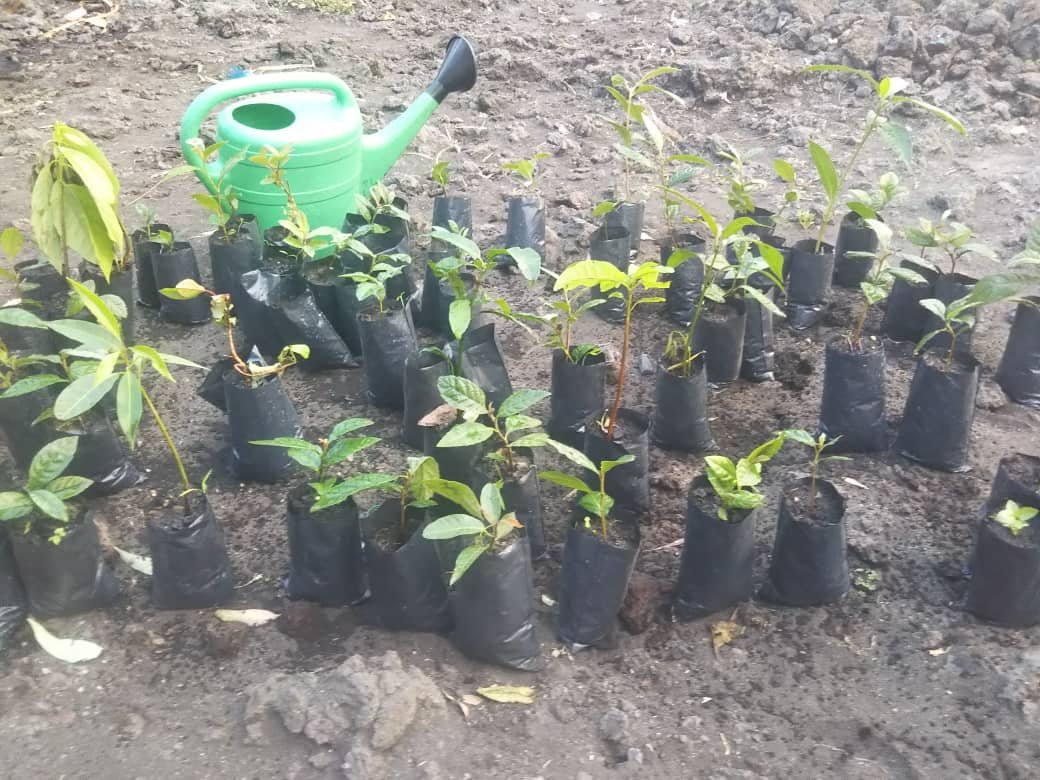
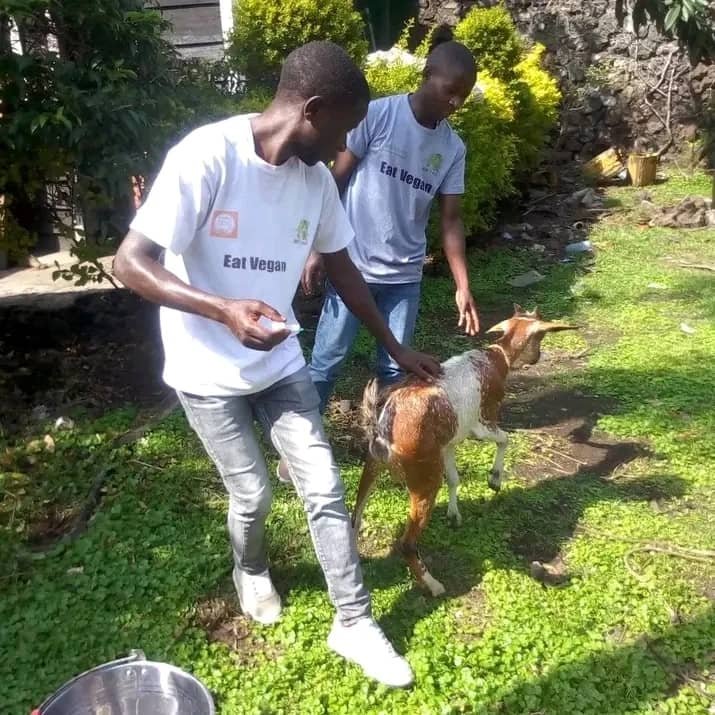
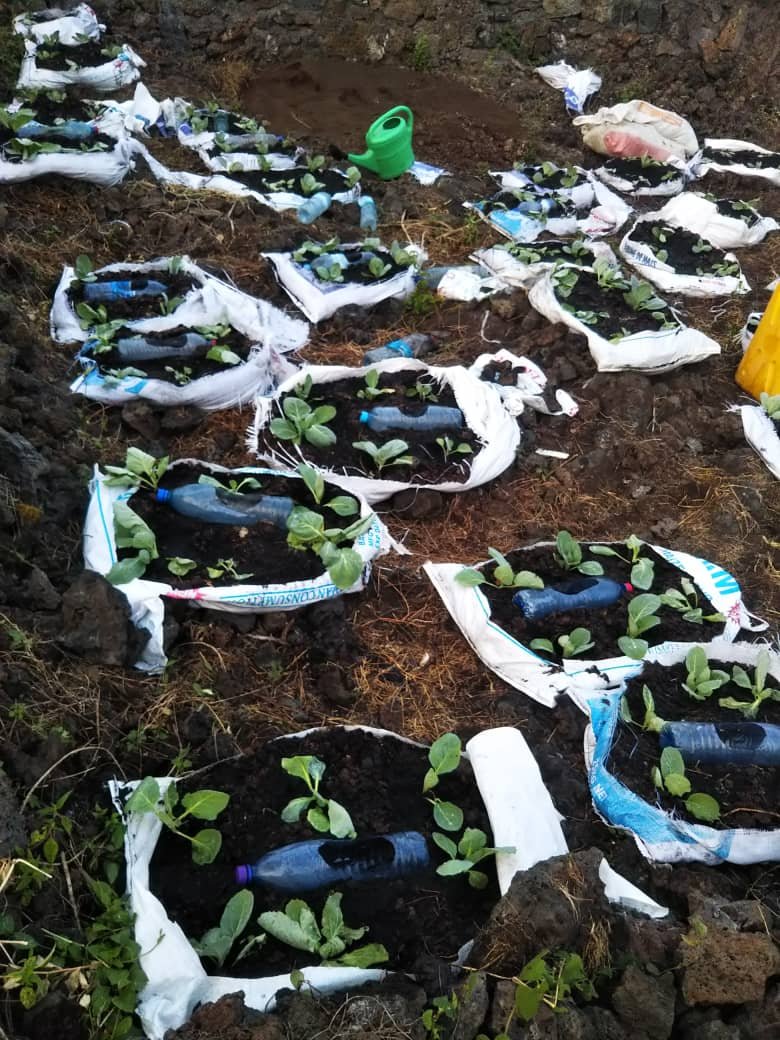
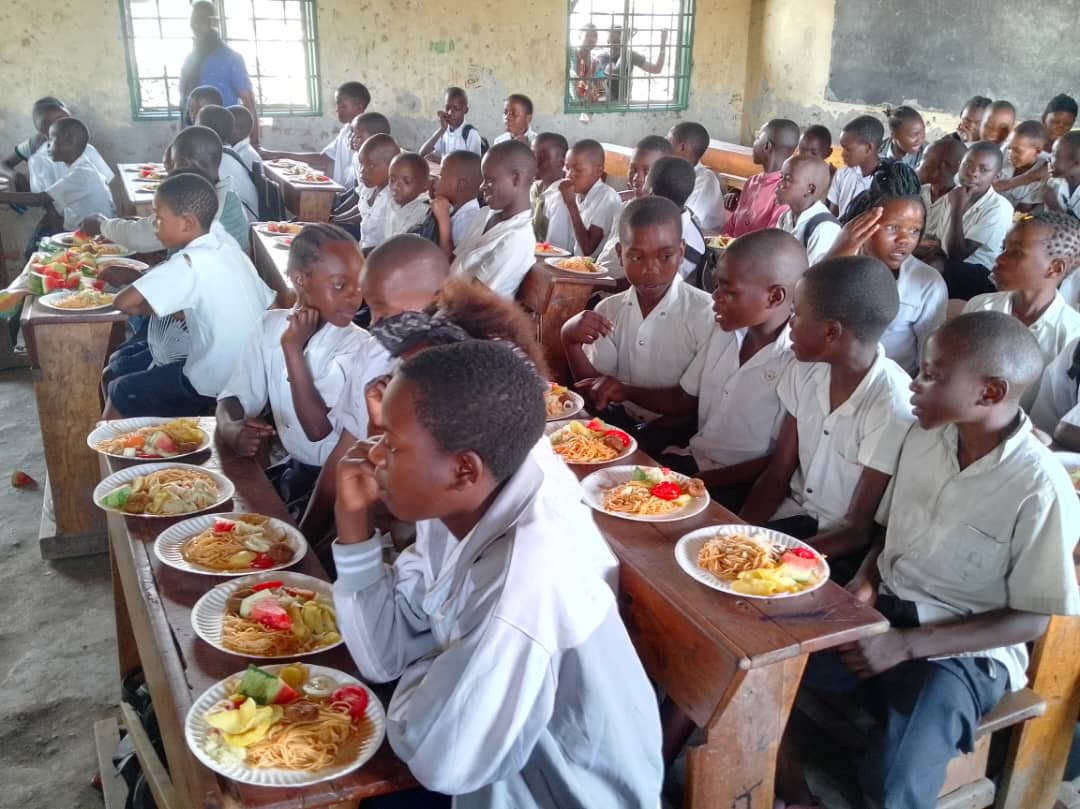
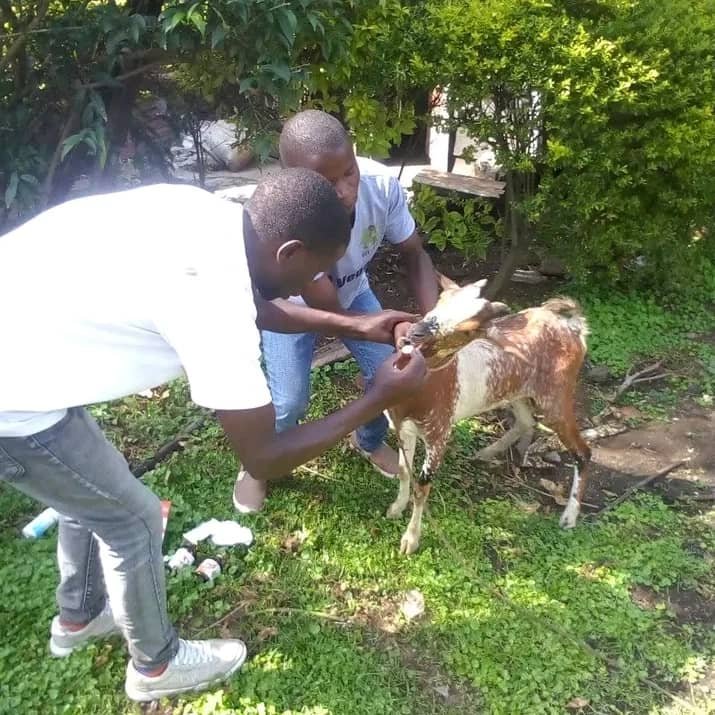
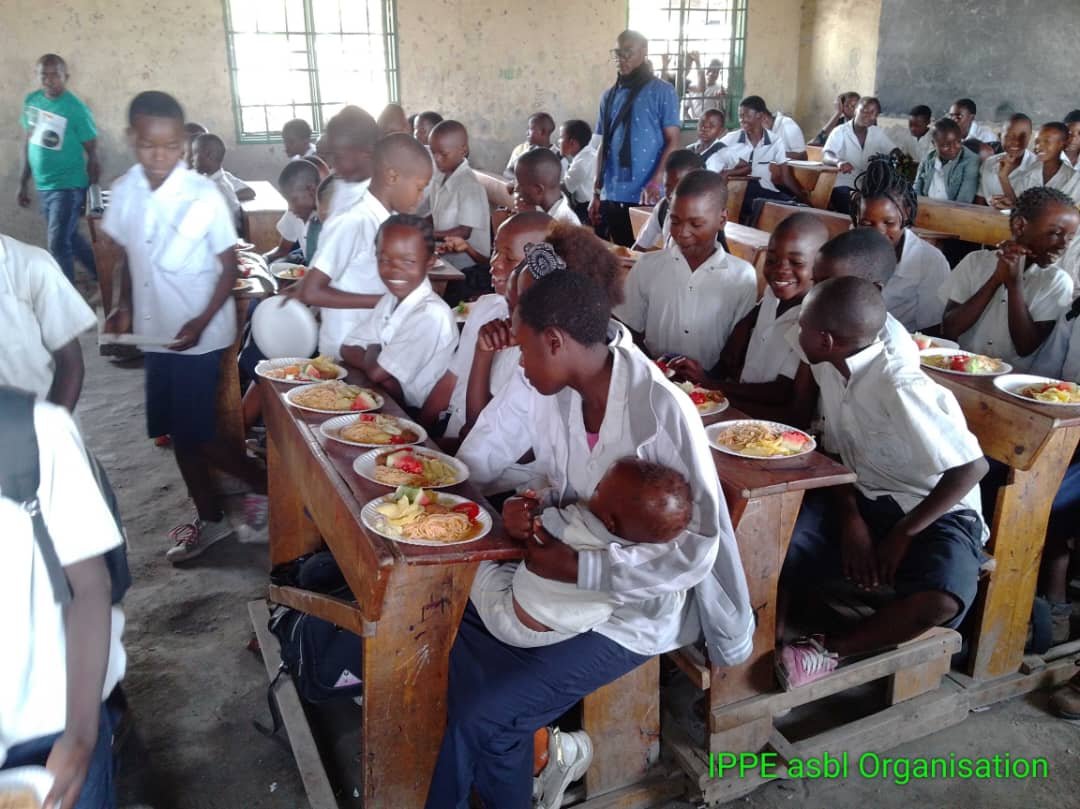
How has the current conflict negatively affected the ecosystems of North Kivu that you are striving to protect?
The current conflict has affected the environment, for the rebels tend to take refuge in the forest. This leads to the irrational exploitation of the wild fauna and flora, resulting in poaching and the illegal cutting of trees to make charcoal.
The ecosystems that are most vulnerable are community forests and rivers. This is primarily due to illegal logging, which threatens the biodiversity of the region and national parks, such as the Virunga National Park, which is home to gorillas, chimpanzees, antelopes, elephants and other animals.
In your opinion, what or who could potentially bring an end to this conflict?
I would say that this situation could come to an end if each political decision-maker could take responsibility for his or her commitments to the country. It is they who are complicit with the rebels and all the wars that communities are forced to endure.
Yet, despite all these mounting challenges, the IPPE continues to carry out programs to help human and more-than-human communities. What are your current projects?
We are carrying out several activities to promote a sustainable and responsible food system. Our current project is to promote sustainable food webs in communities and schools throughout our province. We hope to help the communities achieve food autonomy, as well as contribute to environmental protection. We also hope to protect animals, and we are currently working on a project to educate communities about the importance of a vegan diet in schools throughout the city of Goma and the Nyiragongo territory. Apart from that, we have projects creating community vegetable gardens and agroforestry initiatives, which are currently pending.
In your mission statement, you mention that your organization protects "animal rights". Why is this important to your work, and how can we all protect animal rights?
Animal protection is very important because animals are sentient beings who deserve special attention. They have their own rights, such as the right to health, the right to food, the right to be defended in case of cruelty, the right to survival, and the right to protection, because they themselves don't have the capacity to defend or protect themselves. That is why there must be people who take this issue into consideration, as we already do; if you read carefully, you'll see that what I've just said doesn't differ from what we humans need.
It is in the same vein that we often organize projects and initiatives to educate and raise awareness about the importance of veganism, and how to consume plant-based and vegan foods to reduce the excessive consumption of animal products. We do this for four main reasons:
a) To protect the environment and the planet.
b) To protect animals.
c) To combat famine.
d) To guarantee better health for the community.
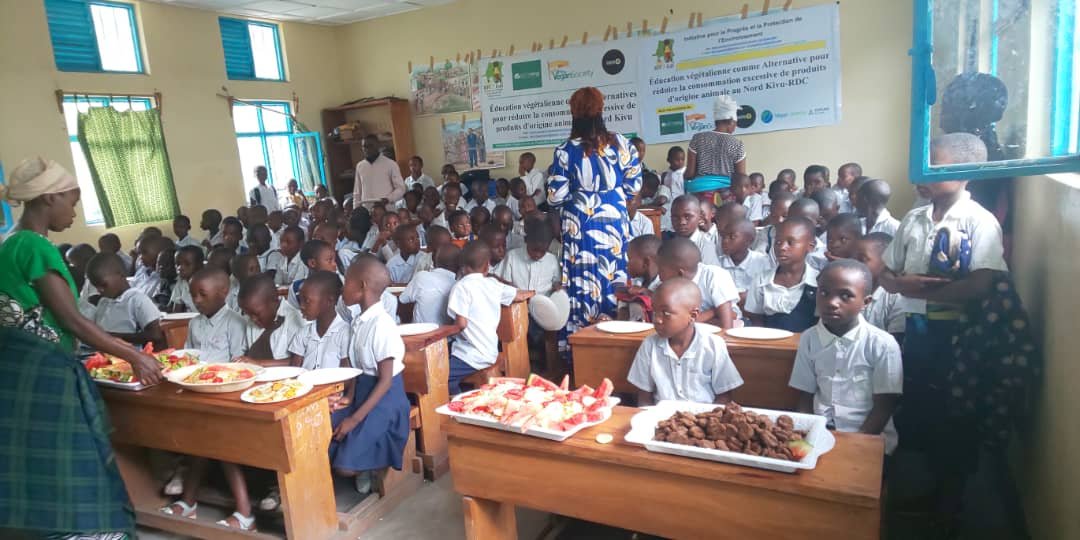
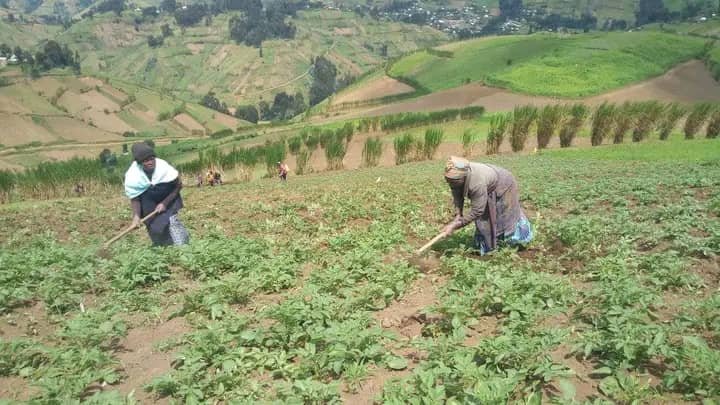
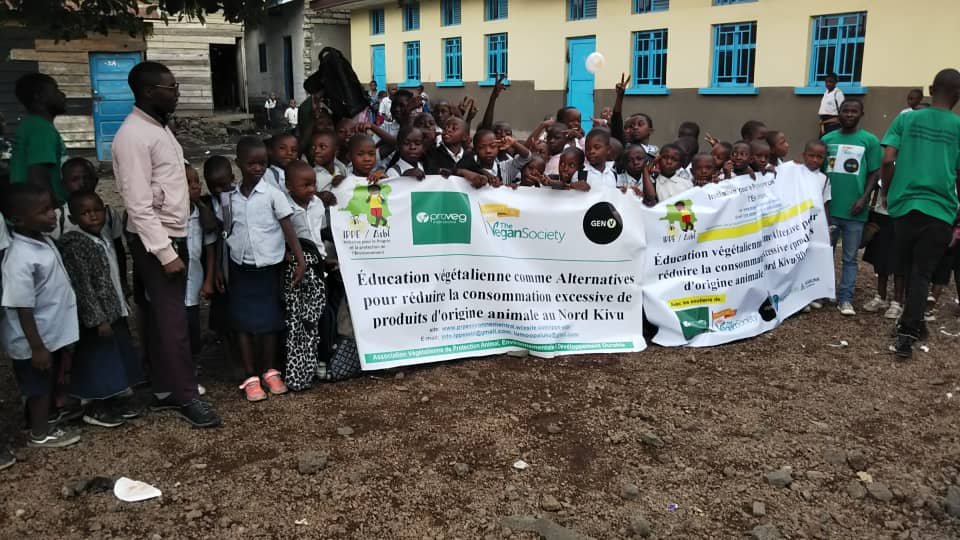
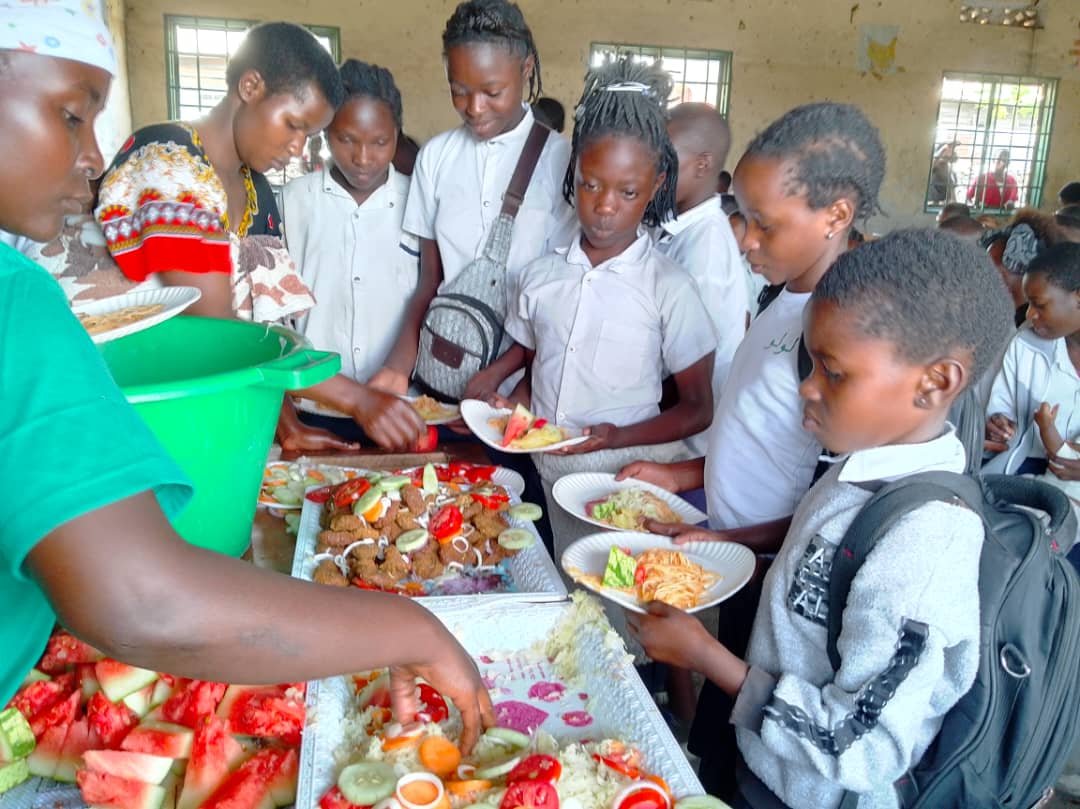
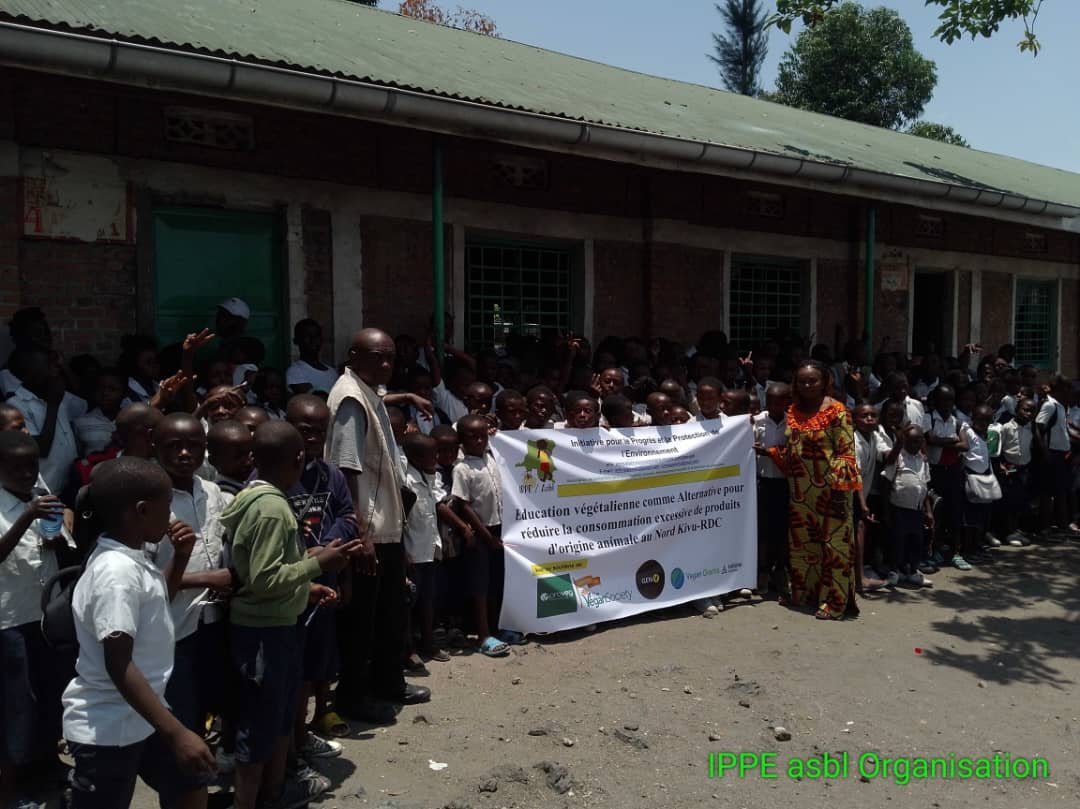
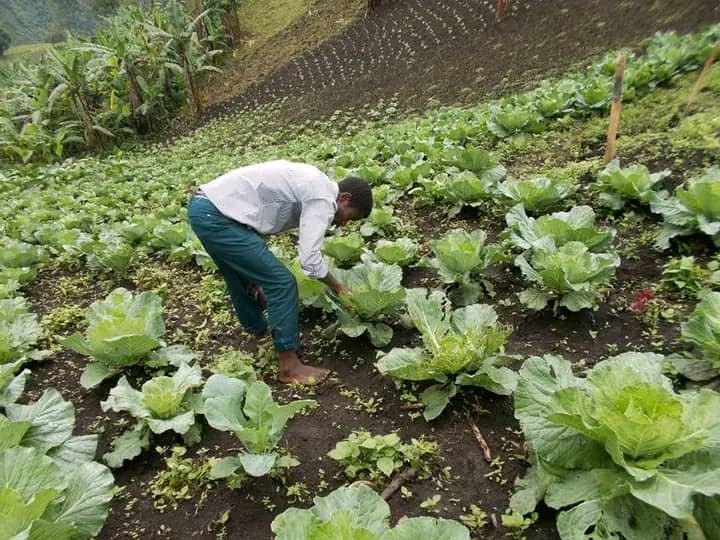
What are your dreams for the future, for you, your family, IPPE and all North Kivu?
Our and my dreams are to:
Promote sustainable and responsible food systems in the community, where all children and adults have the desire to eat in a respectful way without harming living beings.
Help communities achieve food autonomy by contributing to environmental protection and sustainable development.
Reduce human pressure on the ecology, taking into account wild flora and fauna.
Eradicate exploitation and cruelty to animals of all kinds, as they are living beings requiring special attention from humans.
Live in a peaceful, quiet environment where peaceful cohabitation reigns throughout the community,
Set up initiatives, projects and programs where the whole community benefits for a better world.
Contribute to the education and support of vulnerable children, as well as to the improvement of school infrastructures for a better education.
Own a plot of land in the town of Goma so we can set up an office for the association and avoid paying rent at the end of each month.
To make these dreams happen, we plan to set up sustainable projects and nurture collaborations or even partnerships with other organizations, in order to empower our community and respond favorably to their needs.
Could you provide more information about IPPE's vision? What is required at this very moment to make IPPE even more effective in its actions, and what will be necessary in the long term? How can Weave News readers potentially help?
The vision of the IPPE association is to make a lasting contribution to environmental protection and nature conservation, as well as to promote sustainable development in rural areas and support the community towards food self-sufficiency. We make this happen in collaboration with the various donors and collaborators.
In the long term, it would be necessary to set up self-financing initiatives for the association to respond in a timely manner to the needs of the community, but it would also be necessary to have financial partners to fund the IPPE association to continue its projects in the field. Weave News readers can help us by spreading the word about what we are doing for a better world, to see if we can find potential partners to support our various initiatives; or if one of Weave News readers has the possibility of supporting or financing our association, we welcome this support.
To learn more about the IPPE and support their work, go to https://ippeasbl.wixsite.com/ippe-asbl.
You can also donate to them directly at https://www.gofundme.com/f/IPPEasbl.
